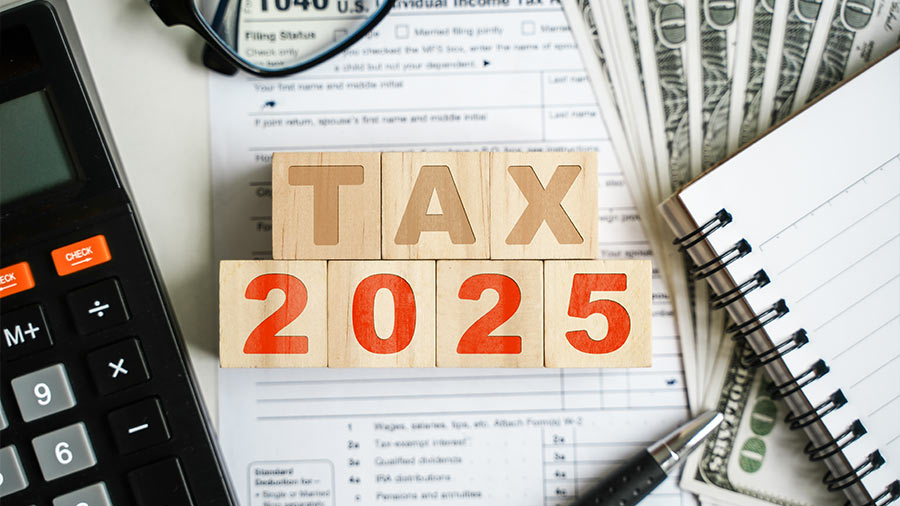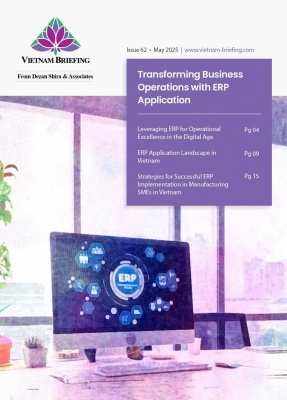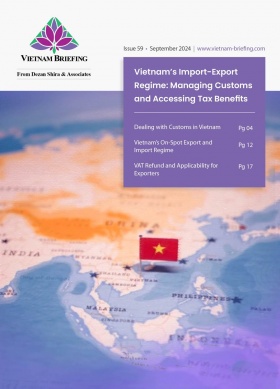Vietnam Automotive Industry in 2025: Growth, Tariff Impacts and Future Outlook
Amidst disruptive supply chains and global trade uncertainties, Vietnam’s automotive sector is still undergoing a critical phase of growth with strong government backing, increasing foreign investment, and growing consumer demand, especially for electric vehicles (EVs).
Vietnam – an emerging automotive market in Asia
Vietnam’s automotive sector is rapidly evolving, emerging as one of the fastest-growing markets in Southeast Asia despite regional slowdowns. According to PwC, the country stands out with a projected total industry volume (TIV) growth of 22 percent, second only to Singapore, while the ASEAN-6’s TIV is expected to decline by 5.4 percent in 2024, largely due to weakening demand in Indonesia and Thailand.
Vietnam’s emergence is fueled by favorable government policies such as temporary registration fee reductions in 2024, interest rate cuts in 2023, and tax incentives. At the same time, EVs are experiencing growing consumer interest in Vietnam, accounting for 20 percent of the country’s total new car sales.
However, Vietnam’s automotive industry is still in a developmental stage with low localization rates. In 2023, about 70 percent of vehicles sold were assembled domestically, yet only 20 percent of their components were produced within Vietnam, reflecting a heavy dependence on imported parts and raw materials. This reliance underscores the pressing need for greater local production capacity to improve cost efficiency and competitiveness.
ASEAN-6 Automotive Industry Volume in 2023 and 2024
Source: PwC
Dominant players in Vietnam’s auto market
A significant shift has occurred in Vietnam’s automotive market, with domestic manufacturer VinFast emerging as a formidable competitor. Once dominated by foreign brands, the market is seeing local players gain ground. VinFast’s introduction of more affordable models has helped it expand its market share from 9.2 percent in 2023 to 21.3 percent in 2024, overtaking many established foreign competitors like Hyundai, Toyota, and Kia.
|
OEM |
Units sold (2023) |
Units sold (2024) |
Market share (2023) |
Market share (2024) |
|
VinFast |
34,885 |
97,399 |
9.2 |
21.3 |
|
Hyundai |
67,450 |
67,168 |
17.9 |
14.7 |
|
Toyota |
57,414 |
66,576 |
15.2 |
14.5 |
|
Ford |
38,322 |
42,175 |
10.1 |
9.2 |
|
Kia |
47,414 |
41,656 |
12.6 |
9.1 |
|
Mitsubishi |
30,894 |
41,198 |
8.2 |
9 |
|
Mazda |
35,632 |
32,601 |
9.4 |
7.1 |
|
Honda |
23,802 |
28,267 |
6.3 |
6.2 |
|
Thaco |
9,524 |
11,165 |
2.5 |
2.4 |
|
Isuzu |
8,671 |
10,522 |
2.3 |
2.3 |
|
Total |
354,008 |
438,727 |
93.7 |
95.7 |
|
Source: PwC |
||||
The year 2024 marked a transformative period for Vietnam’s automotive industry, particularly with the influx of Chinese manufacturers. In 2024 alone, seven new Chinese brands entered the market, bringing the total to 13 and surpassing Japan’s nine brands. What distinguishes these new entrants is their strong commitment to local manufacturing and long-term investments.
Some of the most notable new players are:
- Geely Group: The firm has established a joint venture with Tasco for the assembly of Lynk&Co and Geely Auto vehicles in Thai Binh, planning for an initial annual production capacity of 75,000 units;
- Geleximco-Chery: The brand has announced ambitious plans for a US$800 million assembly plant, with the first phase scheduled for completion by Q1 2026; and
- Skoda Auto: Beyond Chinese investments, the European manufacturer from the Czech Republic has partnered with TC Motor to establish a manufacturing facility in Quang Ninh, marking Vietnam as its inaugural production hub in Southeast Asia.
These developments indicate that Vietnam is increasingly attracting foreign direct investment (FDI), gradually developing a full-scale automotive value chain that spans design, manufacturing, distribution, and after-sales services. Such entry of new players, along with their commitment to long-term investments in Vietnam, will pose challenges to established players in the automotive industry through their combination of competitive pricing strategies and efficient distribution networks.
Competitive edges of Vietnam’s automotive market
Vietnam has several key advantages that distinguish it from other regional automotive markets, particularly in the face of global uncertainty. These include proactive government policies, an extensive free trade network, and strong domestic demand potential.
Government policies
Vietnam has positioned the automotive sector as a central pillar of its national industrialization strategy. Under its national development roadmap for the automobile industry through 2035, the government aims to reach an annual production capacity of 466,400 vehicles by 2025, meeting 70 percent of domestic demand and exporting 37,000 units. In line with climate goals, Vietnam also targets 30 percent of its four-wheeled and 22 percent of its two-wheeled vehicles to be electric by 2030.
To achieve these targets, the government offers various support policies and incentives to attract FDI and promote a robust automotive ecosystem, as shown in the table below.
|
Year |
Regulatory |
Details |
|
2015 |
Decree 111/2015 |
Corporate tax incentives for supporting industries |
|
2016 |
Decree 122/2016 |
Import tax exemption for components if car manufacturers commit to assembling a minimum of 3,000 units per model |
|
2017 |
Decree 116/2017 |
Increased administrative procedures for fully assembled imported vehicles |
|
2018 |
ASEAN Trade in Goods Agreement (ATIGA) |
0% import tax on vehicles |
|
2020 |
Decree 70/2020/ND-CP |
50% reduction in registration fees for domestically assembled cars (June 2020 to December 2020) |
|
2021 |
Decree 103/2021/ND-CP |
50% reduction in registration fees for domestically assembled cars (December 2021 to May 2022) |
|
2022 |
Decree 10/2022/ ND-CP |
Full exemption on EV registration fees for three years, followed by a 50% reduction for the subsequent two years (January 2022 to January 2025) |
|
2023 |
Decree 41/2023/ND-CP |
50% reduction in registration fees for domestically assembled cars (July 2023 to December 2023) |
|
2024 |
Decree 109/2024/ND-CP |
50% reduction in registration fees for domestically assembled cars (September 2024 to November 2024) |
|
2025 |
Decree 51/2025/ND-CP |
Full exemption on EV registration fees for two years (March 2025 – February 2027) |
|
Source: Vnexpress |
||
Government policies have created a favorable business environment that enables both domestic and international automotive companies to thrive while boosting domestic vehicle demand, especially EVs. Since the introduction of the first-time registration tax for EVs in 2022, monthly first-time electric car registrations have grown from an average of 404 vehicles in 2022 to 2,440 vehicles in 2023 and further to 6,648 cars in 2024. Experts expect similar positive impacts on demand following the recently announced extension of the EV registration period in 2025.
Free trade agreements
Vietnam’s extensive network of 18 bilateral and multilateral free trade agreements (FTAs) strengthens its position as a strategic investment destination. These FTAs reduce trade barriers and provide Vietnamese manufacturers access to cutting-edge technology and new export markets. With one of the broadest FTA networks in ASEAN, Vietnam is well-positioned to integrate into global automotive and EV supply chains.
Potentials from the domestic market
Vietnam’s demographic and economic fundamentals are conducive to sustained growth. The nation boasts a young population, increasing disposable incomes, and a low vehicle ownership rate—only 1 in 43 individuals own a car, while in Thailand it’s 1 in 10, and in Malaysia, 1 in 20—indicating significant growth potential. According to KPMG, around 70 percent of Vietnamese consumers are open to buying electric or hybrid vehicles, especially among Gen Z and Millennials. Demand is projected to reach 800,000–900,000 cars in 2025 and up to 1.8 million by 2030.
Impact of Trump’s new auto tariff
US President Donald Trump recently signed executive orders that soften the automotive tariffs introduced by his administration in May. While a 25 percent base tariff on imported vehicles remains in place under Section 232 national security laws, this primarily affects countries without FTAs with the U.S, including Vietnam. This also means that cars made with at least 85 percent of parts compliant with the US-Mexico-Canada Agreement (USMCA) and assembled domestically will be exempt from these tariffs.
The new policy also addresses the issue of “stacked tariffs” by applying only the highest applicable one. This new policy for the automobile industry is designed to encourage the US’s domestic vehicle assembly, offering partial relief from the increased costs and buying time for automakers to localize production further.
However, a challenge remains for Southeast Asia’s automotive sector, including Vietnam, a major auto parts trading partner with the US. One of the possible risk mitigation strategies for the regional automotive industry is a strategic shift in focus. Vietnamese companies like VinFast are recalibrating their global strategies. The automaker is temporarily pausing expansion plans in the US, Canada, and Europe due to rising logistics costs and unfavorable trade conditions. Instead, it is shifting focus to Asia, where demand is growing. New factories in India and Indonesia are already underway, reflecting this pivot toward more promising and less politically volatile markets.
Conclusion
Vietnam’s automotive industry is at a pivotal moment. While still in development, the sector is seeing rapid transformation thanks to supportive government policies, foreign investment, and rising domestic demand, particularly for EVs. Challenges remain, especially in terms of supply chain localization and international trade tensions, but the country is well on its way to becoming a key player in the regional and potentially global automotive landscape.
About Us
Vietnam Briefing is published by Asia Briefing, a subsidiary of Dezan Shira & Associates. We produce material for foreign investors throughout Asia, including ASEAN, China, and India. For editorial matters, contact us here and for a complimentary subscription to our products, please click here. For assistance with investments into Vietnam, please contact us at vietnam@dezshira.com or visit us at www.dezshira.com.
Dezan Shira & Associates assists foreign investors throughout Asia from offices across the world, including in Hanoi, Ho Chi Minh City, and Da Nang. We also maintain offices or have alliance partners assisting foreign investors in China, Hong Kong SAR, Dubai (UAE), Indonesia, Singapore, Philippines, Malaysia, Thailand, Bangladesh, Italy, Germany, the United States, and Australia.
- Previous Article Transforming Business Operations with ERP Application – New Publication Out
- Next Article Vietnam Enhances Incentives for National Innovation Center: Implications for Business and Startup Community
































